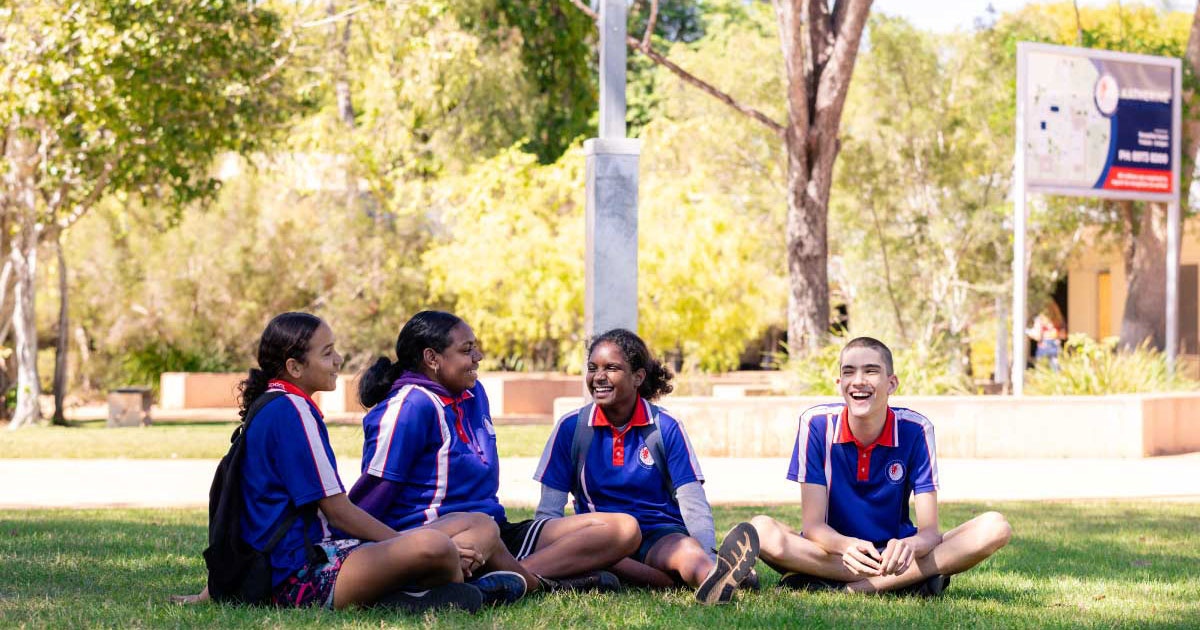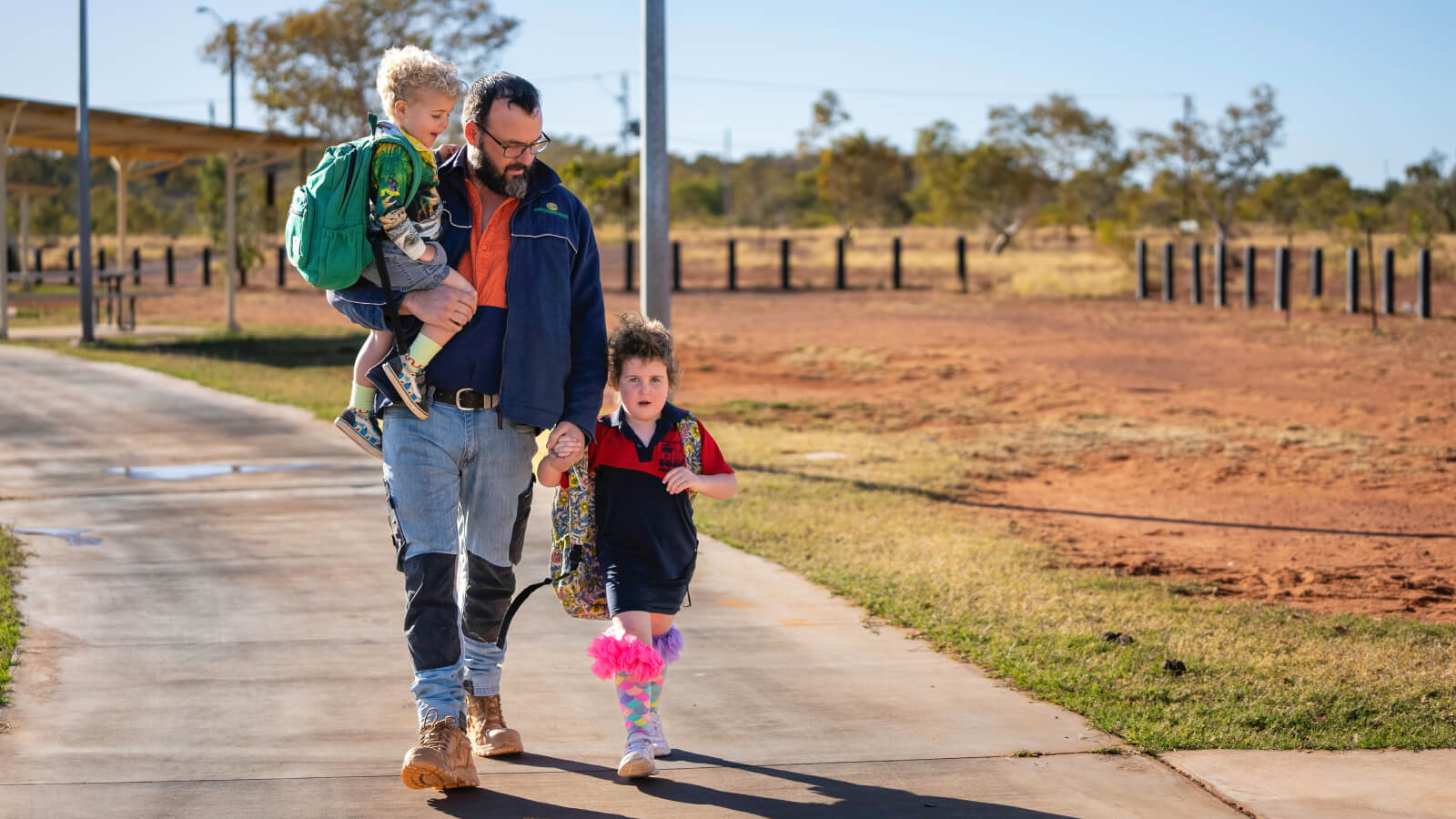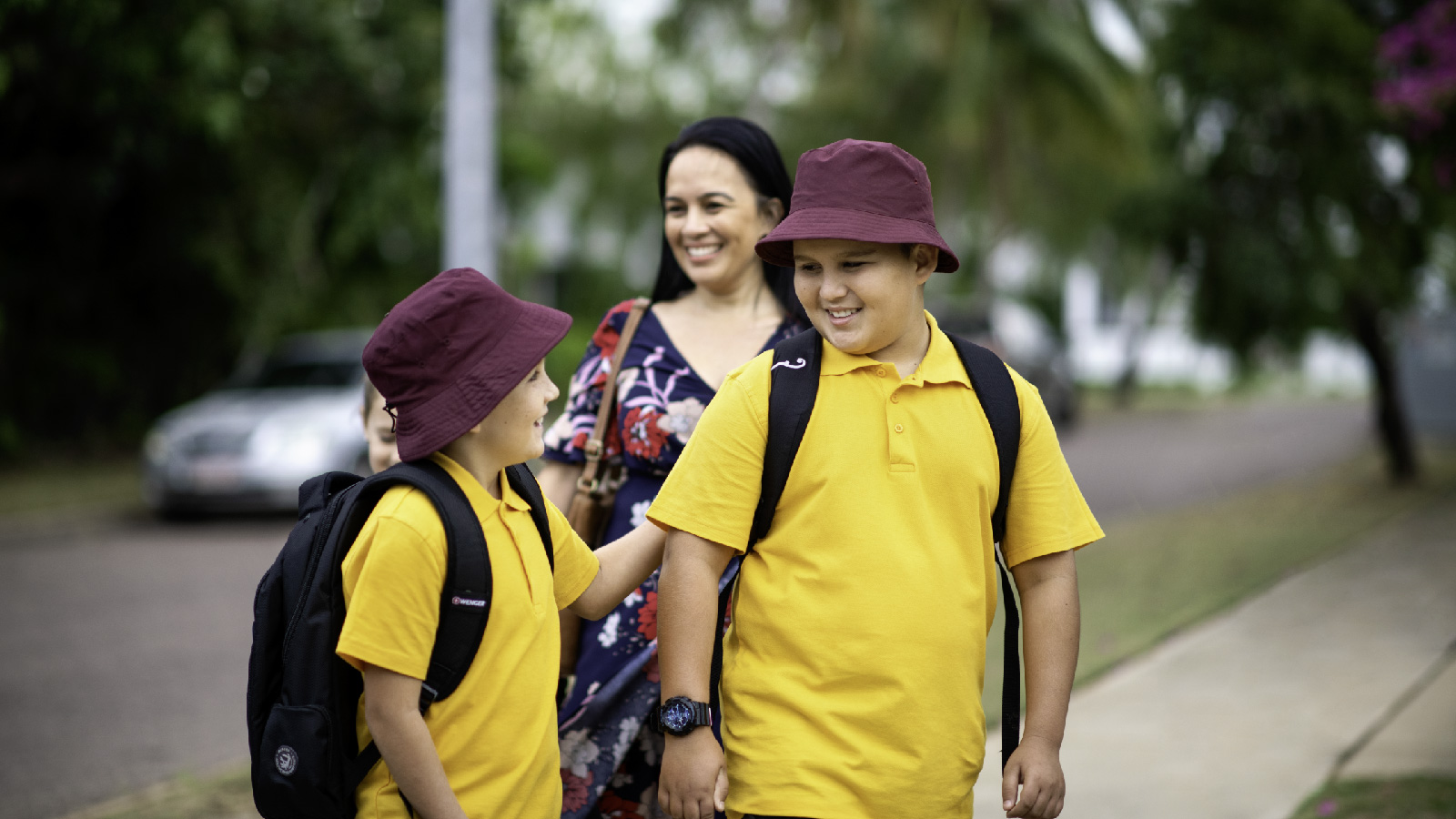When it comes to choosing a school for your child, it's important to find the right one that will work for your child and your family.
Schools in the Territory start with one year in transition class (sometimes called prep, kindergarten or reception), and then move to years 1 through 12. International students often commence in senior secondary for years 10, 11 and 12.
There are different types of schools in Australia, these include:
- government schools (sometimes called public schools)
- non-government schools (also called independent or private schools)
- schools that cater for students with specials needs
- faith-based schools
- alternative schools, such as Montessori and Steiner schools
- distance education schools.


Finding a school
We have an education directory that provides details on all schools in the NT.
You can also go to the MySchool website to find out more information on a school's:
- profile
- enrolments
- financial information
- NAPLAN results
- year 12 results.
You can apply to enrol your child in a school of your choice but, for government schools, precedence is given to students living in the school's priority enrolment area.
If a school is approaching or has reached capacity, it will decline applications from students living outside its priority enrolment area.
You can go to the Department of Education website for more information about priority enrolment.
You must enrol your child in school from the age of 6, however many parents choose to commence their child’s education around the age of 4, when they can be enrolled in preschool.
The stages of schooling are:
- primary school - transition to year 6
- middle school - year 7 to year 9
- senior school (or high school) - year 10 to year 12.
Your child must complete year 10 of secondary education, after which they can participate in approved education, training or work until they turn 17.
Find out more about the stages of schooling.
The Northern Territory Certificate of Education and Training (NTCET) is awarded at the end of year 12 to students who successfully meet its requirements.
The NTCET, based on and administered by the South Australian Certificate of Education (SACE), is awarded based on a credit system. Students must gain 200 credits through a mix of compulsory and non-compulsory subjects over two stages:
- stage 1, which most students complete in Year 11
- stage 2, which most students complete in Year 12.
Students may also incorporate their NTCET studies with vocational education and training (VET), and community learning, such as the Duke of Edinburgh’s Award and St John Ambulance Australia.
With the right combination of subjects, students may then qualify for an Australian Tertiary Entrance Rank (ATAR). An ATAR is recognised by universities internationally and at all universities in Australia.
When choosing a school for your child, you should consider:
- if the school caters for your child's needs and interests
- what facilities the school offers
- the school policies on homework, discipline and wellbeing
- what other activities and services are available, such as outside of school hours care (OSHC)
- the school's proximity to home, work and carers
- the size of the school
- the teaching methods and classroom environment
- the assessment and reporting procedures
- what extracurricular activities are offered
- how communication between home and school is managed
- the opportunities for parental involvement, such as school council
- a visit to the school to meet the principal and teachers.
School websites also have useful information on the culture and philosophy of a school, and provide information on resources and activities.
Information is also available on the MySchool website.
Is there something missing from this page?
Let us know.

Childcare services in the NT
A range of child care and preschool services is available to your family in the Northern Territory.

Universities in the NT
Be inspired by bright minds, connect with local industry, network, and create an amazing future here by studying in the Northern Territory.

International students in the NT
Studying in the Northern Territory will give you a quality education, genuine employment opportunities, and a chance to connect with like-minded people.

VET / TAFE in the NT
Vocational educational and training (VET) in the NT gives you skills and knowledge to do a job in the workplace such as in retail or an office, or in a trade.
